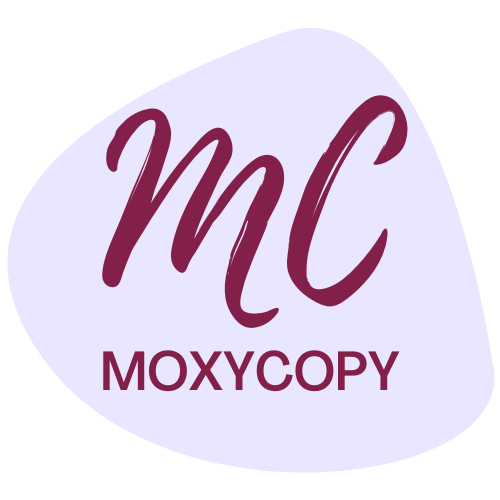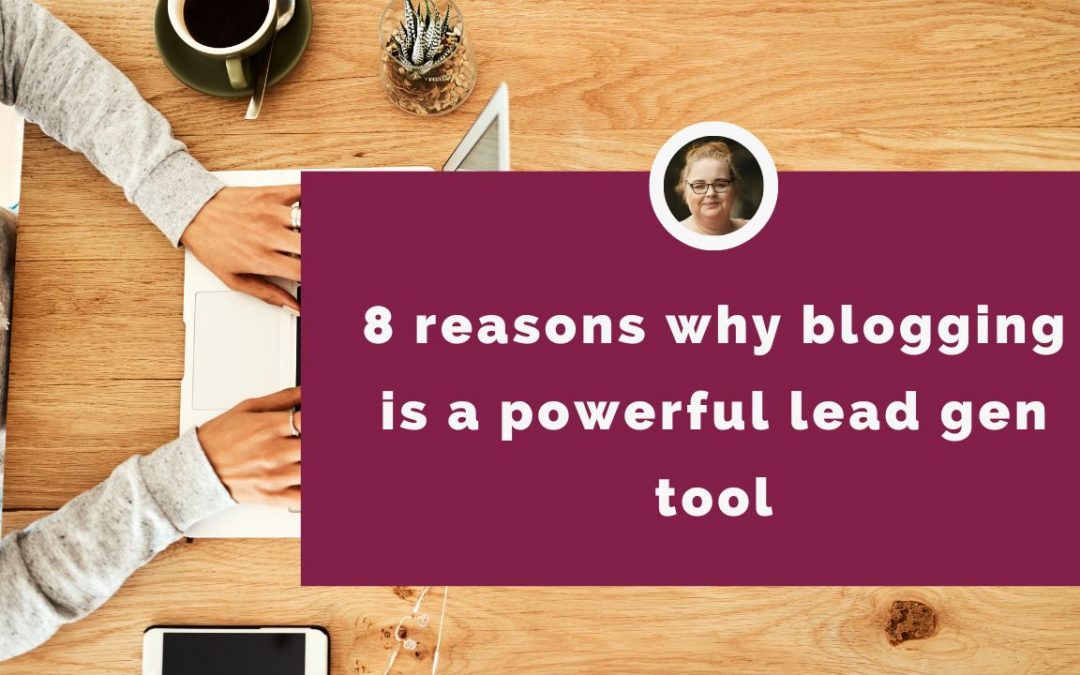Ten years ago, blogging was simply a hobby, but now it’s an essential part of our marketing tool kit and lead gen activities.
There are approximately 500 million blogs worldwide, and even though blogging has hit it big, I still get puzzled looks and questions when I advise someone to start a blog for their business.
And for that reason, I thought it would help business owners out there to see exactly what the benefits are of blogging for their business, but before I jump into the main reasons, here are some interesting stats (courtesy of Hubspot):
- Businesses that blog experience 126% more lead growth than businesses that don’t.
- 47% of buyers view 3-5 pieces of content before contacting a business.
- 70% of people would rather learn about a company through articles than advertisements.
That definitely shows how powerful blogging can be for a business, but let’s dive in and look at the benefits in more detail:
Establish yourself as an expert
People don’t buy from businesses or people they don’t trust. So, when you publish your blogs, you’re positioning yourself as an expert. You’re demonstrating your knowledge and expertise, showing you know what you’re talking about.
This helps build trust with your potential clients or customers.
And that trust can be built even further when you interact with people in the comments. Don’t just post and run; make sure you have notifications for people commenting, and check back regularly to respond to comments.
Get more traffic to your website
Apart from wanting to be entertained, people regularly use the internet to find solutions to their problems, and this is where blogging can make a massive difference to your website traffic.
It can be challenging to rank in Google using broad keywords like “business coach” or “landscape gardener”. Thousands of sites will rank for these general terms, so getting noticed is almost impossible.
But, if someone searches online for their problem (a longtail keyword), your site has more chance of getting noticed. Here’s an example:
Let’s say your business is handmade jewellery. If you search for handmade jewellery on Google, you will have millions of pages. However, if you have a blog that answers the question “How do I choose the best jewellery for my outfit” you stand much more chance of getting onto the first couple of pages when someone searches for this question.
Generate more leads
Just like every blog post is another page for Google to index – giving you more opportunities to get found, every blog post is also an opportunity to get more leads.
And the way you do that is very simple.
At the end of every blog post, include a call to action (CTA); often, these CTAs will lead to lead magnets. These include ebooks, whitepapers, fact sheets, webinars, etc. Basically, any valuable content someone would be willing to exchange for their email address.
Just in case you’re not clear on how this process (often called a funnel) works, here’s a brief overview:
- A visitor lands on your blog
- They see the CTA for a free offer
- They click on the CTA and arrive at a landing page, which contains a form for them to fill in with their information
- They fill out the form, submit information, and receive the free offer
- From there, you can nurture them through an email sequence, building that know, like and trust factor and leading them to a point where they are ready to buy
At the end of this post, you’ll see my own CTA.
Answer customer questions and overcome objections
Customers will always have questions, and the logical side of their brain is constantly telling them why they shouldn’t buy whatever product or service you are offering. So, blogging can be a great way to overcome these objections before you ever get to the point of a sales call.
For example, one objection I often get is that hiring a copywriter is expensive. And I get it, we’re in scary times, but because of these difficult times, businesses need to push their marketing more than ever.
So, I could do blogs about recent customer successes and how their results from working with me covered their investment many times over.
Or you could do an FAQs blog that answers your most common questions.
There are loads of ways you can help your customers in the buying decision process before you’ve even spoken to them.
Generate social media content
Generating social media content is something a lot of business owners struggle with. They either don’t know what to post or don’t have the time to create daily content, but that’s where a blog helps.
A blog is typically a long-form piece of content containing a lot of information; you can easily break this down into bite-size pieces for social media.
For example, I could take this post and create a week of content sharing the top reasons every business should blog. The same goes for videos or podcasts; if you have any long-form content, it can be repurposed. You can even turn videos or podcasts into blog posts and repurpose them for social media.
The possibilities are endless.
SEO and link building
As I mentioned above, using longtail keywords is a great way to help improve your rankings on Google. Still, there are other SEO benefits to blogging for your business.
Google loves fresh content and regularly updated websites. So, adding a weekly or monthly blog to your site lets Google know that your site is active and relevant. If a website is left without being updated for six months or more, it quickly moves down the rankings.
Another massive benefit to blogging is link building. Links to your blog from other websites show Google that people find your content interesting, boosting rankings. However, getting links to your blog can be challenging, particularly from high-quality sites. I recommend researching this in more detail and highly recommend Matthew Woodward’s content.
You can also build internal links. These links on your blog send people to other parts of your website (you will have seen them throughout this post). The reason this is so beneficial is that a. it helps Google see how your pages are linked, and b. it means people will stay on your website longer as they browse through other blogs or your site pages in general.
Lead conversion
Generating more leads is great, but wouldn’t it be even better if blogging could help you convert those leads?
Well, it can and here’s how.
Reducing the marketing process down to its most basic, there are three stages to the buying process.
- The Awareness Stage
- The Consideration Stage
- The Decision Stage
And blogging can help at all three stages.
The awareness stage
Checklists and tips in a blog post can help attract new clients or customers and interest them in your products or services.
The consideration stage
“how-to” topics can help customers in this stage who might need a little push and more info about a product.
The decision stage
Testimonial and case study blogs can help a customer in the decision stage who may need social proof before purchasing from you.
Helps share business news
Blogging is a great way to get your business news out into the world.
Taken on a new member of staff? Share it.
Have a new offer? Share it.
Attending a local event or business show? Share it.
You can literally share any of your business news. This helps your customers, or even potential customers, stay updated with what you’re doing and how your business is developing.
All of this helps that know, like, trust we hear about all the time.
So that’s it, 8 reasons blogging for your business is a powerful lead gen tool. Are you convinced? Are you ready to start your blog or revive a neglected blog?
As a content and copywriter, helping businesses attract and nurture their ideal clients to grow their sales lights me up. Drop me a message today if you need help identifying your perfect client, perfecting your messaging, or marketing your services.
You can also download my FREE guide to make SEO Easy, a handy desktop guide packed with quick and easy tips to get your business found online.
Or
If you’re stuck with where to start with your social media or blogs, I send a FREE email every Sunday with 7 content ideas for the week ahead to help you get those creative juices flowing. You can sign up here.

